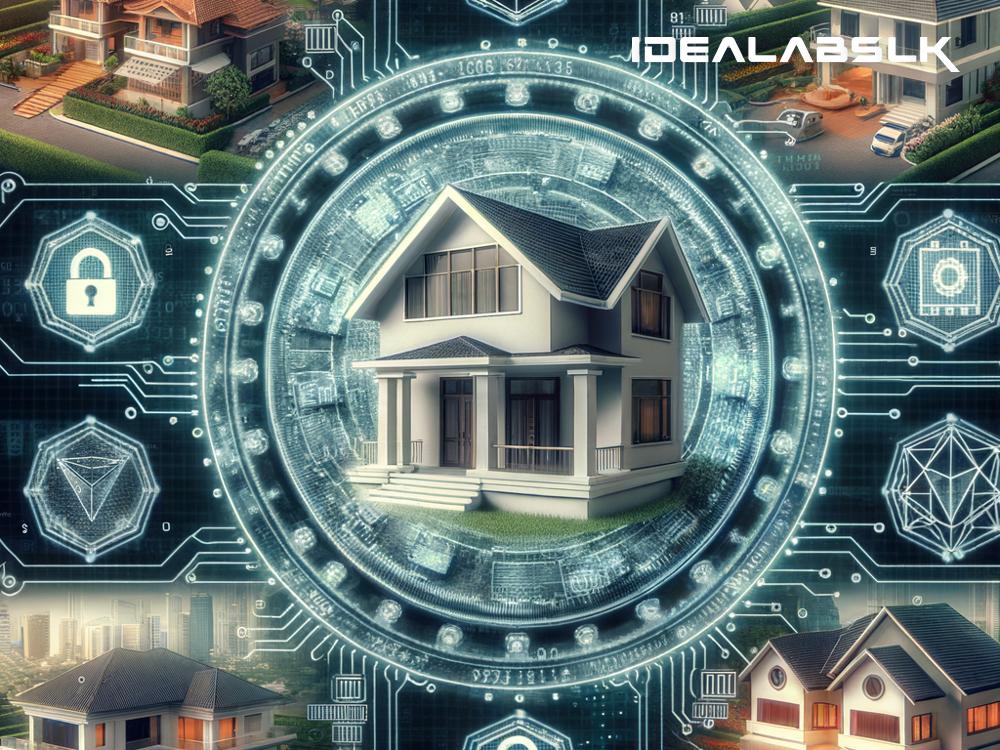Unlocking the Future: How Blockchain Powers Secure Real Estate Transactions
When we think about buying a house, we often imagine the joy of turning the key in the front door for the first time. But before that moment arrives, there's a complex journey involving heaps of paperwork, numerous fees, and, unfortunately, the potential for fraud. Here's where blockchain technology, a term you've probably heard in relation to cryptocurrencies, steps in to revolutionize the real estate world by enhancing security and trust in transactions.
So, what is blockchain, and how does it work? Imagine a digital ledger that is completely transparent and virtually incorruptible. This ledger records transactions across many computers in such a way that the records cannot be altered retroactively. Thanks to these features, blockchain technology offers exciting solutions for several industries, with real estate standing out due to its significant impact on reducing fraud and making transactions smoother and more secure.
The Traditional Real Estate Process: A Breeding Ground for Complexity and Risk
Traditionally, buying or selling property involves several steps and participants, such as agents, banks, lawyers, and more. Each plays a crucial role in ensuring the transaction is fair and legal. However, this process is not only time-consuming and costly but also prone to errors and fraud. Fake listings, forged documents, or the misrepresentation of properties are issues buyers and sellers face, leading to financial losses and a general mistrust in the process.
Enter blockchain, a technology that is transforming the real estate sector by introducing a new level of transparency, efficiency, and security.
Simplifying Transactions with Blockchain
Blockchain technology simplifies real estate transactions in several key ways:
1. Smart Contracts: The Elimination of Middlemen
Smart contracts are self-executing contracts with the terms directly written into code. In real estate, this means agreements can automatically enforce themselves once conditions are met, like transferring property titles after a payment is made. This not only speeds up transactions but also significantly reduces the need for intermediaries, cutting down on costs and potential for fraud.
2. Transparency and Security
Every transaction on a blockchain is recorded on a block and distributed across multiple nodes (computers), making it nearly impossible to alter data. This provides an unprecedented level of transparency and security, allowing all parties to view transaction histories and verify ownership without the fear of tampering.
3. Tokenization: Ownership Made Liquid
Blockchain enables the tokenization of real estate assets, meaning a property can be divided into digital shares, or "tokens," representing ownership. This can lower barriers to real estate investment, making it possible for more people to invest in properties and for owners to liquidate portions of their property more easily.
The Benefits: A Look at the Bigger Picture
Reduced Fraud
The immutable nature of blockchain significantly reduces the potential for fraud. With documents and titles recorded securely on the blockchain, the risk of forgery and the manipulation of documents is minimized.
Efficiency and Cost Reduction
Blockchain can expedite the tedious process of property transactions, from the initial agreement to the final sale, saving all parties time and money. By eliminating many of the middlemen, the costs associated with real estate transactions can also be reduced.
Enhanced Transparency
The transparency of blockchain gives all parties a clear and indisputable record of the property's history, including previous sales, prices, and any disputes, giving buyers the confidence they need to make informed decisions.
The Road Ahead
Whilst the potential for blockchain to revolutionize real estate is immense, the transition won't happen overnight. Regulatory hurdles, the need for widespread adoption, and breaking the inertia of traditional processes are challenges that need to be navigated.
However, pilot projects and startups are already paving the way, showcasing the benefits of blockchain in real estate across various markets. As these initiatives continue to grow and gain traction, we can expect blockchain to become a staple in real estate transactions, offering a level of security and efficiency that was previously unthinkable.
In conclusion, blockchain technology is set to transform the real estate industry by enhancing transaction security and transparency. While challenges remain in implementing this technology at a large scale, its potential to simplify transactions, reduce fraud, and make real estate investment more accessible paints a promising future for buyers, sellers, and investors alike. The key to that future is unlocking the power of blockchain, and the real estate world is just beginning to turn the key.

